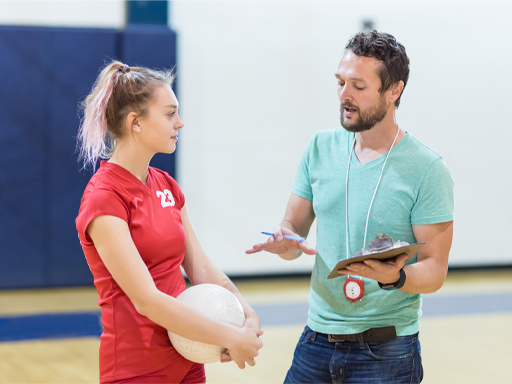Session 8: Effective support of female athletes
Introduction
The inability of male coaches to understand how best to engage with female athletes has been determined to be a key barrier to participation, engagement and progression in this population.
The coach-athlete or parent-athlete relationship is important in supporting athletes. An ideal coach-athlete relationship is one that is successful in terms of achieving the performance required and is effective in terms of the personal growth and wellbeing of the athlete (Jowett, 2007).
At the time of writing, UK Sport suggest that women currently occupy just 10 per cent of coaching positions in Olympic and Paralympic sport. In sport as a whole, from grassroots level to professional levels, just 30 per cent of coaches are female.
As coaching is a male dominated profession, many female athletes will have male coaches. While there are many successful male coaches of female athletes, any gaps in the skillset of males in support roles to understand how to engage with their female athletes can be a significant barrier to a successful relationship (e.g., Norman and French, 2013). The success and wellbeing of an athlete is dependent on this relationship as Jowett (2017, p. 155) says: ‘how one feels, thinks and behaves affects and is affected by how the other feels, thinks and behaves’.
In this session you will be exploring some concepts that are key to an effective relationship between a coach and a female athlete and to help coaches consider how they can best engage with female athletes.
It must be stated here that every athlete, male or female, is an individual and will have their own specific needs for coaching and support. However, some understanding of general preferences of female athletes for support might help develop communication styles that best suit the female athlete. Research has shown that certain aspects of the coaching environment, like democratic decision making and personalised and positive relationships, are beneficial to improving female athletes’ experiences in sport (Norman, 2016).
By the end of this session, you should be able to:
- appreciate the potential differences in preferred coaching between female and male athletes
- explore how coaches may develop effective relationships with female athletes
- increase awareness of how male coaches can effectively support female athletes.

